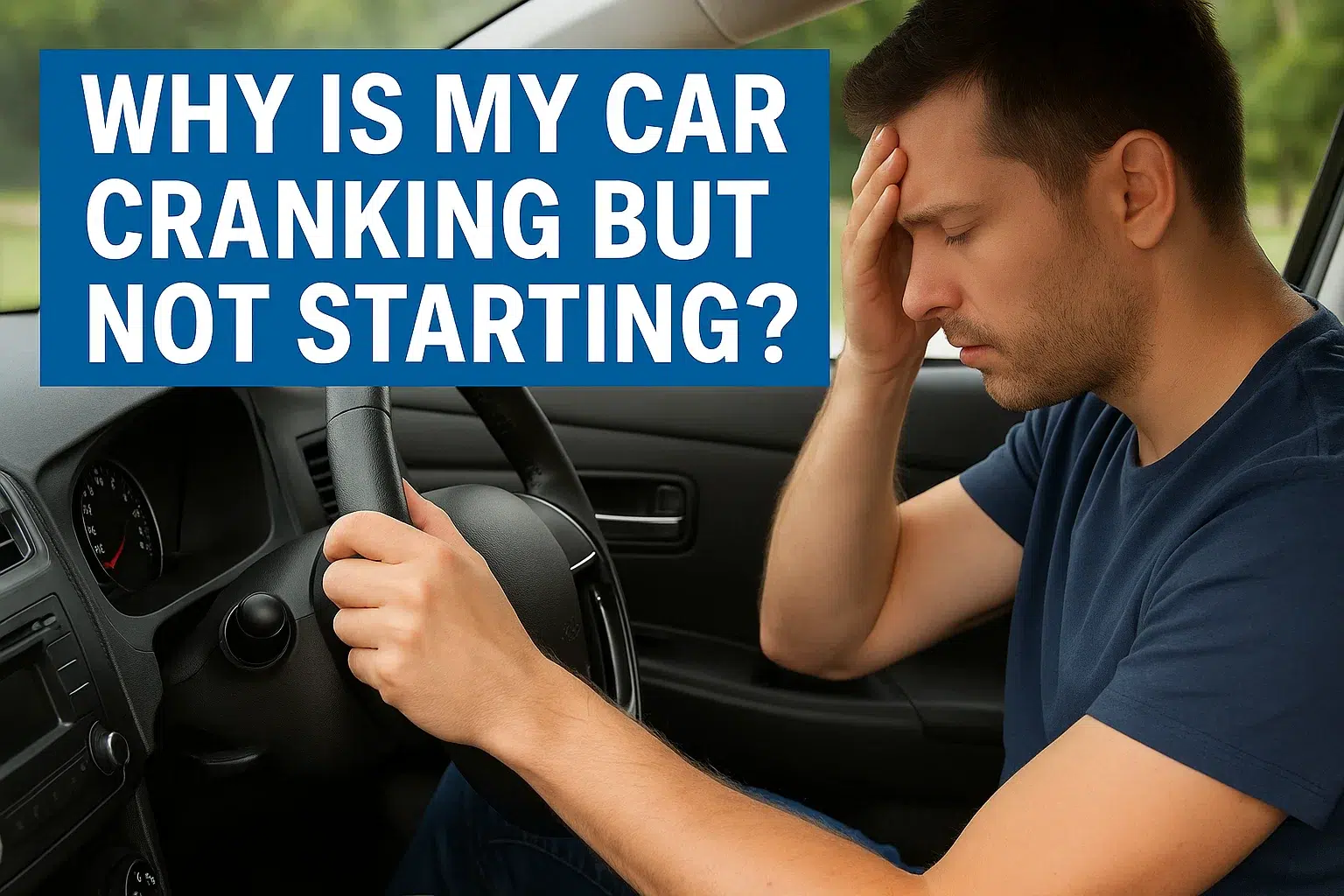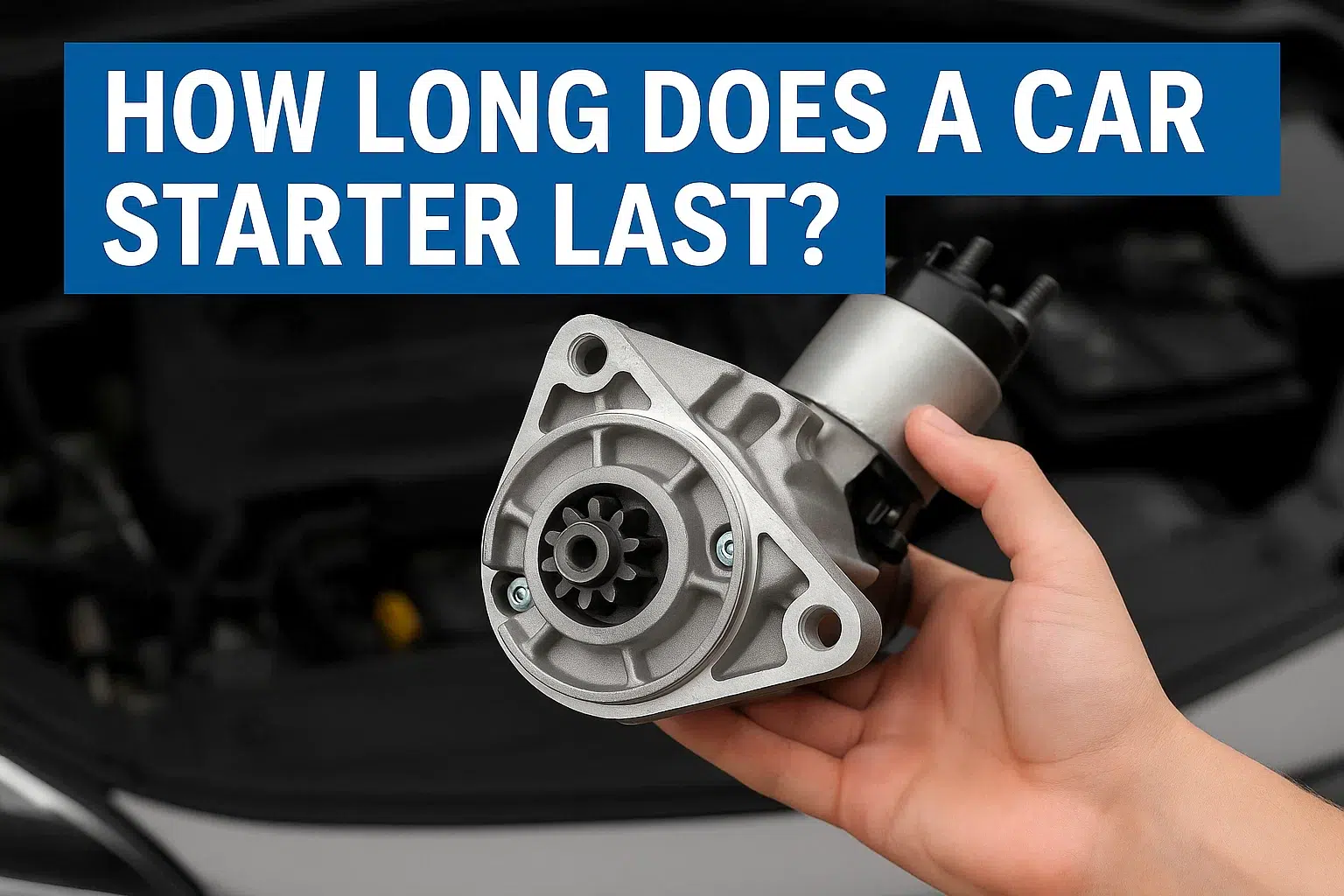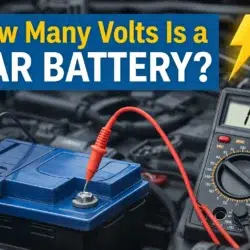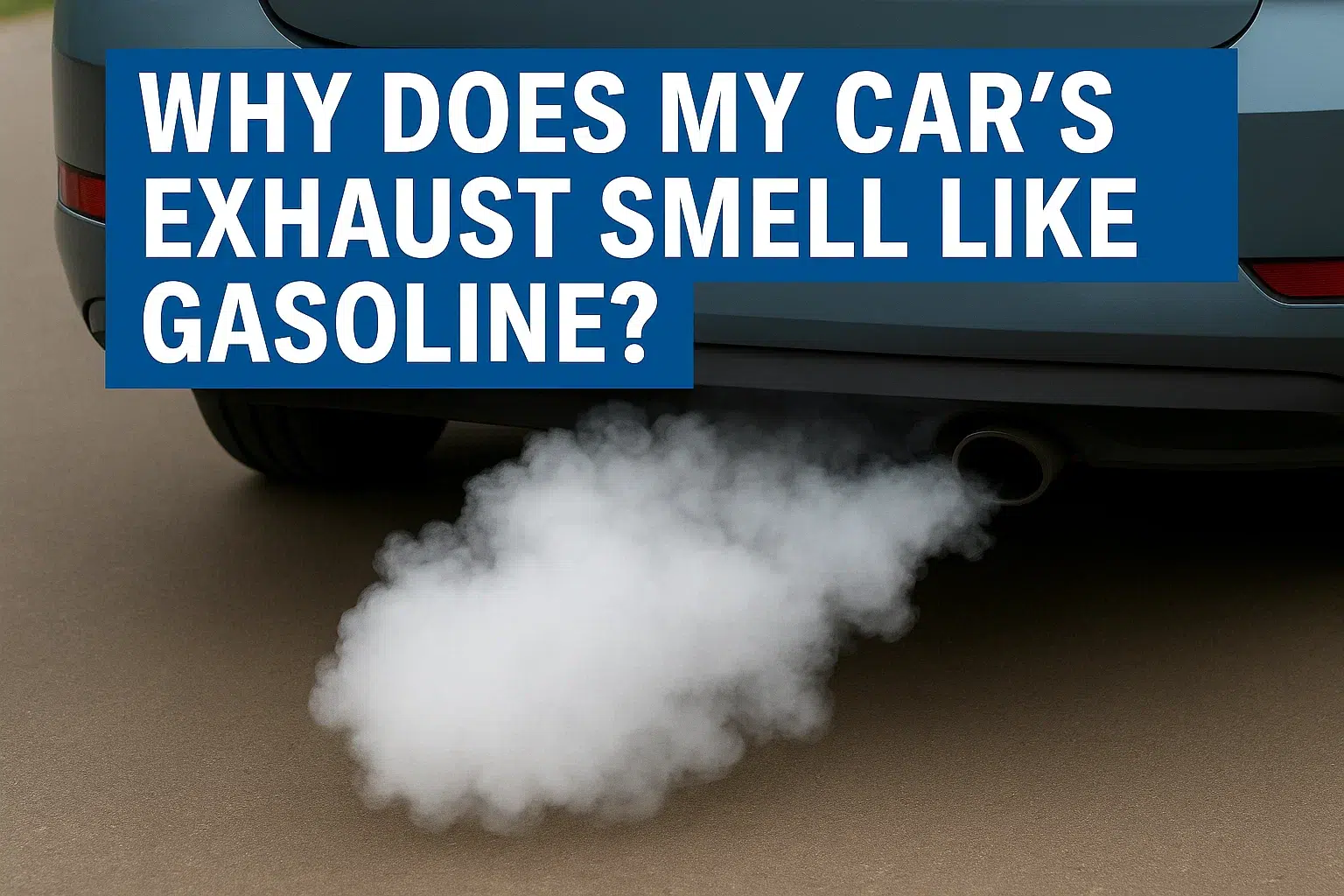If your car cranks but won’t start, it usually means the starter motor is turning the engine, but fuel, spark, or air is missing. Common causes include a dead fuel pump, weak battery, faulty ignition switch, or clogged fuel filter. Checking the battery, fuel supply, and spark plugs can often identify the problem before calling a mechanic.
Understanding Crank vs. Start
Many drivers confuse cranking with starting:
- Cranking: The starter motor spins the engine.
- Starting: The engine fires and runs on its own.
If the engine cranks but does not start (crank no start or engine turns over but won’t fire), it means the starter works, but something essential – fuel, spark, or compression is missing.
1. Battery and Electrical System
A weak or partially discharged battery may crank the engine but fail to start it. Look for:
- Slow cranking speed
- Dimming dashboard lights
- Clicking noises
Use a multimeter to check voltage (≥12.4V is ideal). Corroded terminals or a failing alternator can also cause engine cranks but won’t start.
If your engine cranks slowly, it might indicate a failing starter, check how long does a car starter last to know when replacement is needed.
2. Fuel Delivery Problems
Engines require the right amount of fuel to fire. Common issues include:
- Empty fuel tank
- Failed fuel pump or relay
- Clogged fuel filter
- Faulty fuel injectors
Test by turning the key to “ON” and listening for a faint hum (fuel pump priming). No sound may indicate pump or relay failure.
A clogged fuel system can also cause poor acceleration when pressing the gas.
3. Ignition System Faults
If fuel is present but no spark occurs, the engine will crank but not start. Common causes:
- Worn spark plugs or ignition coils
- Faulty crankshaft position sensor
- Broken ignition switch
Testing with a spark tester confirms if the ignition system works.
4. Air and Engine Compression
Engines need air and compression to start. Problems can include:
- Dirty air filter
- Stuck throttle body
- Blown head gasket
- Broken timing belt or chain
Timing belt failure can cause the engine to crank without starting, requiring immediate professional repair.
5. Security System or Key Issues
Modern cars may refuse to start if the key fob battery is dead or the immobilizer detects tampering.
- Try a spare key
- Check for flashing security lights
6. Weather-Related Causes
Cold weather can thicken engine oil, slowing cranking. Moisture inside ignition components may also prevent spark.
Step-by-Step Diagnosis for DIYers
Before calling a mechanic:
- Listen for fuel pump priming
- Inspect battery terminals for corrosion
- Check fuses and relays
- Test for spark with a spark tester
- Scan for error codes with an OBD-II tool
For professional standards, see professional no-start diagnosis by ASE.
When to Call a Mechanic
If basic checks fail, a mechanic can test fuel pressure, compression, and sensors. Persistent engine cranks but won’t start issues often need diagnostic tools.
Persistent no-start problems may require professional diagnostics, and it helps to understand typical front axle repair costs for broader maintenance budgeting.
Preventive Maintenance Tips
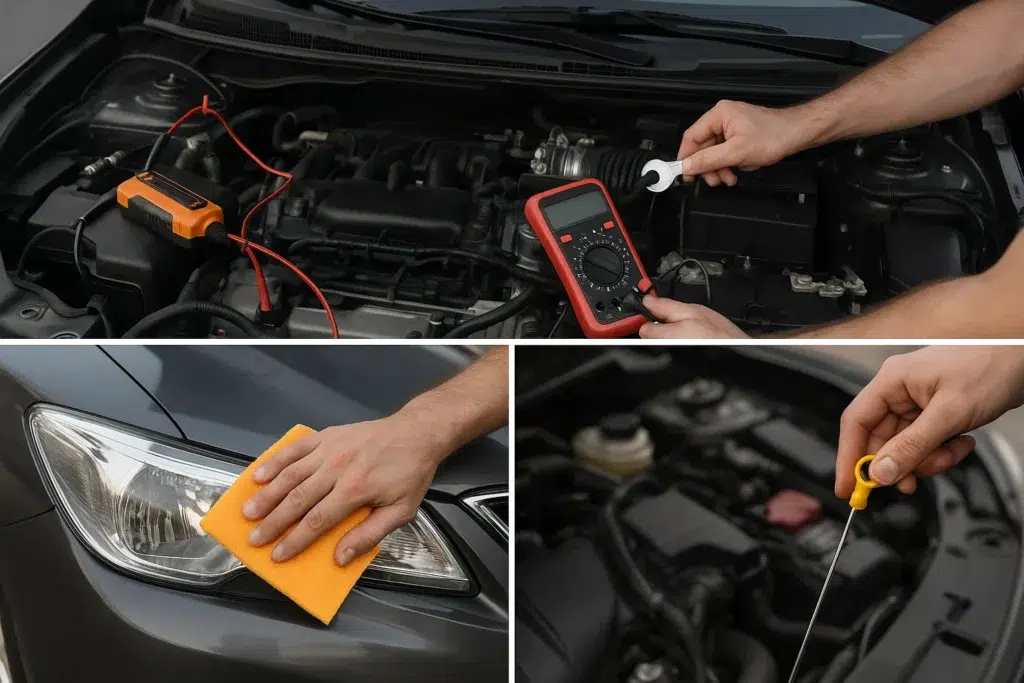
- Replace the fuel filter every 20,000 – 40,000 miles
- Use high-quality spark plugs and replace as recommended
- Keep the battery charged and test before winter
- Follow manufacturer maintenance schedules for timing belts and sensors
Other Symptoms to Watch
- Cranking but shaking: Could be a flooded engine
- No crank, no start: Usually a dead battery or starter
- Crank then stalls: Possible idle air control or mass airflow sensor problem
Weather & Seasonal Considerations
Hot weather can cause vapor lock, while cold weather can lead to battery drain and thicker oil. Maintaining your car reduces these risks.
Extreme temperatures may also trigger warning signs like a car smoking but not overheating.
FAQs About Car Cranking But Not Starting
What to do if a car cranks but won’t start?
Check the battery, fuel level, and fuses first. If those are fine, have a mechanic inspect the fuel, spark, and ignition systems.
How do you diagnose a crank no start?
Test for fuel, spark, and air. Use a scan tool to check error codes or have a professional run a full diagnostic.
Can an ignition switch cause crank but no start?
Yes. A bad ignition switch can cut power to the fuel or ignition system, letting the engine crank without starting.
Can a bad battery cause a crank no start?
Yes. A weak battery may crank the engine but not supply enough voltage to start it.
What makes a car crank but not start?
Common causes include fuel delivery issues, faulty spark plugs, bad sensors, or electrical problems like blown fuses.
Final Thoughts
A car that cranks but does not start can be frustrating. Understanding the difference between cranking and firing helps identify the issue. By checking the battery, fuel system, ignition, and air supply, you can often solve the problem or provide clear information for your mechanic.
Timely maintenance and early diagnosis save money and improve safety. Need more help with engine problems? Check out our full Car Maintenance & Repairs guide.

I am Tushar Balchandani, founder of Car Info Expert and someone who has been working extensively in the car industry as a car expert for 15 years. My aim is to provide useful truthful and reliable information to the readers based on my real experiences and hands-on experience. From buying tips to maintenance guides, I help readers make confident car-related decisions.

